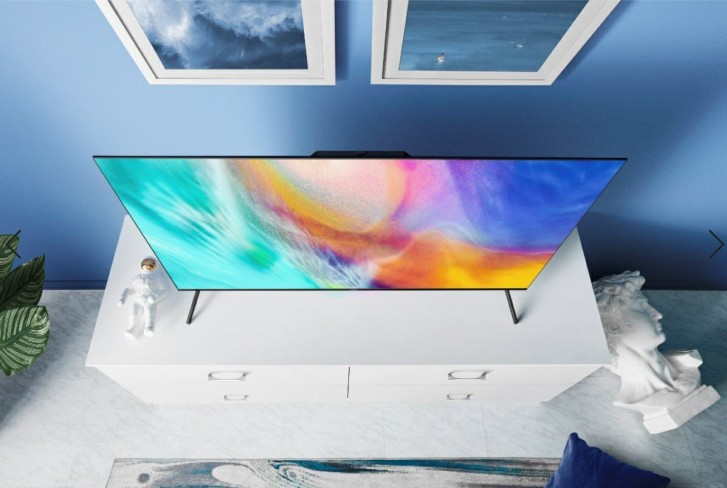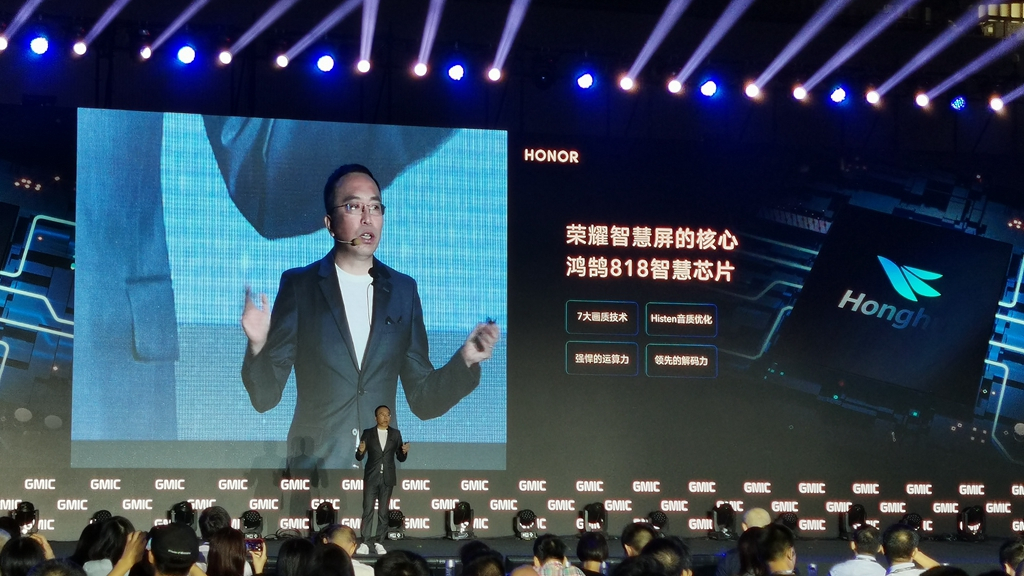I have just returned from a trip to China and then I saw a recent announcement about a new TV from Honor. Honor is a Huawei company and a major supplier of smartphones. The Honor Vision is the first TV the company has offered and leverages many smartphone features to create a smartTV. Let’s start with the TV’s features then step back and look at this development from a more geopolitical perspective.

The Honor Vision TV will be offered in two versions: Vanilla and Pro. Both will feature 55” IPS panels with 4K resolution, 400 cd/m² of peak luminance and 87% NTSC color gamut coverage. These are quite mediocre specs with the 400 cd/m² being on the low end for HDR performance and an IPS panel offering lower contrast than a VA type.

Inside are TV are chip sets that are more smartphone-like than smartTV-like. For example, TV image processing is being done by HiSilicon, a Huawei company. The Honghu 818 chip set was revealed at the World Mobile Internet Congress held in China by Honor President George Zhao in a keynote address (photo). It does Motion Estimate and Motion Compensation (MEMC), High Dynamic Range Imaging (HDR), Super-Resolution (SR), Noise Reduction (NR), Dynamic Contrast Improvement (DCI), Auto Color Management (ACM) and Local Dimming (LD). There is advanced audio processing includes and it can decode 8K/30 or 4K/120 video content, along with 64MP images (codecs not specified). The HiSilicon Hi1103 chipset features dual-band Wi-Fi at 2.4GHz and 5GHz to support peak download rates up to 1.7Gbps.

What separates the Vanilla from the Pro version is the addition of a pop-up camera. Powered by a HiSilicon Hi3516DV300 NPU chipset, it leverages AI capabilities to do face recognition, body tracking and posture detection. Since security cameras are literally everywhere in China, having another camera in your home may not be a big deal there – but it will be in other regions. The Pro model has six 10W speakers instead of four and 32GB of storage instead of 16GB.
The New Harmony OS
Orchestrating everything is Huawei’s new Harmony OS which was unveiled at the annual Huawei Developers Conference in Dongguan, China by CEO Richard Yu who led the keynote. The Harmony OS is likely to be a major move by Huawei into the OS space. While the Honor Tv is the first home for it, it will surely show up in Huawei smartphones and other mobile devices and even automobiles in the future. With a wide support for programming languages including C/, C++, Java, JavaScript and Kotlin, the OS is very versatile and could, potentially even be adapted with full Android app compatibility fairly quickly. That should make Google a little nervous.
HiLink is one part of the new Harmony OS. It is designed to allow the TV to act like a hub for all your smart home needs. For example, this feature offers seamless connectivity to your smartphone or tablet for the sharing of files and multimedia, inputting text and controlling the TV remotely. It claims to be able to seamlessly switch between DLNA mode and Miracast display streaming with an advertised latency as low as 100ms.
The TVs go on sale in China in mid-August for 3799 RMB (~$543) and 4799 RMB (~$686).
The US Perspective
As most you probably know, U.S. Government agencies are currently banned from sourcing components and products from Huawei and a number of related companies, including HiSilicon, ostensibly for security concerns. Other U.S companies are restricted from selling components to Huawei-related companies. This is but one element of the China-US trade war which now also threatens to extend into the currency markets as recent devaluations of the Chinese Yuan effectively undercuts the effect of the new tariffs by making Chinese goods less expensive.
But U.S. officials should be careful in what they wish for. For example, many believe the real reason behind the trade war and Huawei in particular is to thwart or delay technology advances being rapid made in China. Huawei is the leading developer of 5G and U.S. officials may be concerned the U.S. will lose the advantage in this next transition.
But this strategy may backfire. Huawei has seen its sales surge recently as many Chinese see this as a national threat and they want to support their domestic supplier. Such threats can also reinvigorate a competitive spirit that can actually serve to accelerate efforts from Chinese companies. Case in point – the Harmony OS which may become a direct threat to Android.
The Chinese government and its people can do remarkable things when all hands are on deck. I was in the city of Qingdao where such efforts are quite visible. In addition to the dozens of apartment buildings going up, the city has just brought three major subways lines into operation in the last five years. We are talking well over 100 miles of above and below ground track, infrastructure, subways cars, operators, etc. Could any U.S. city ever accomplish such a feat? Not in this century. It is the unintended consequences of all of this action that may become the most troubling legacy. And we don’t know what that may be yet. (CC)

